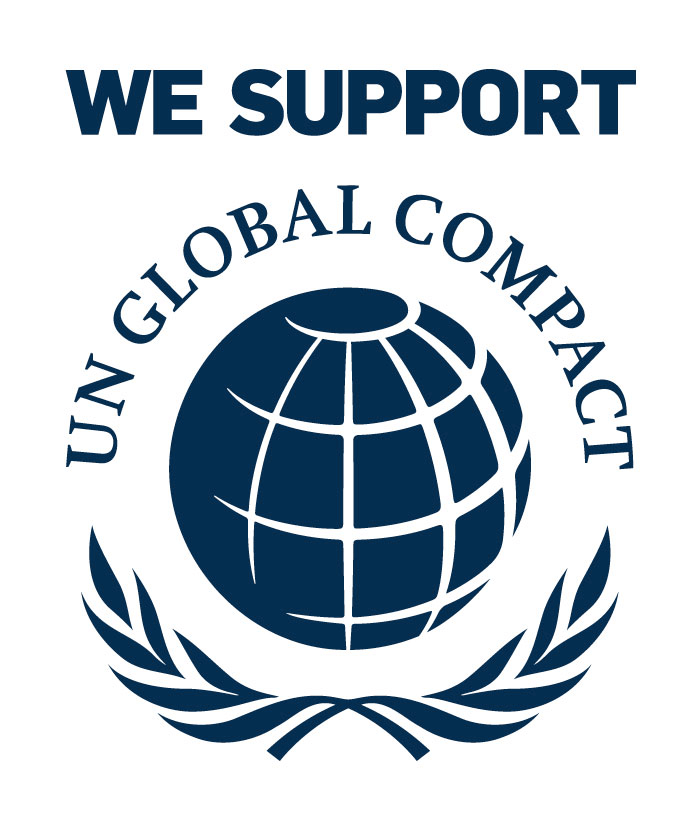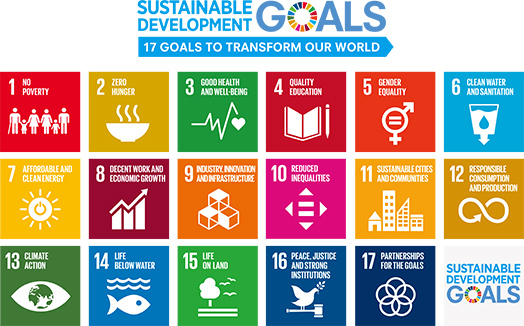Our corporate philosophy includes slogans like "proposing new value" and "contributing" to people around the world and shows our desire to contribute to society. This leads to sustainability, through our contributions to solving social issues through our business. Based on this belief, we believe that our mission and reason for existence is to create products and services that contribute to solving various social issues.
We established the CSR and Sustainability Charter, the Corporate Code of Conduct and the CSR Basic Policies (12 policies in total) in order to present this idea in a ready-to-understand manner and for broad communication both internally and externally, and we promote CSR / Sustainability. The CSR Basic Policies have been approved by the Board of Directors and take precedence in all processes in all businesses of the Niterra Group, including research and development, design, production, procurement of materials, logistics, selection of business partners, and joint ventures and acquisitions. We have also established a system to promote the realization of a sustainable society.
We have expressed our support for international norms, goals, and guidelines such as the UN Global Compact, ISO26000, SDGs, and TCFD, based on our commitment to contribute to solving social issues through our business activities.

To ensure sustainable growth for our group and society, we have established the CSR and Sustainability Committee (which holds regular meetings four times a year and extraordinary meetings as needed), which is chaired by an outside director, focuses on external perspectives, identifies priority management issues for three fields of “social issue resolution,” “human capital,” and promotes activities.
The CSR and Sustainability Committee responds to inquiries from the Board of Directorsby external experts will be invited as guest committee members to enhance the knowledge and perspective, and discussions will be held to promote sustainability management with a long-term perspective.
Furthermore, for significant ESG themes, subcommittees are established under the CSR and Sustainability Committee for close monitoring. Currently, the Human Rights Subcommittee has been launched to supervise the effectiveness of human rights due diligence.
Each special committee monitors whether their respective specialized operations are functioning effectively.
Progress on "responding to climate change" and "risk management," which have been identified as priority management issues, has been shared with the CSR and Sustainability Committee.
Important decisions made by special committees are reported to the board of directors through the Management Meeting which deliberates, decides, and supervises important matters in business execution.
The CSR and Sustainability Committee met 10 times in FY2024, discussing the ideal state of sustainability management, the next priority management issues to be prioritized, and revisions to the CSR Basic Policy. In addition, the Human Rights Subcommittee, established within the Committee, held two meetings to discuss its activities and report on the results of human rights due diligence. An expert lecture with external experts is held annually, and lively exchanges of opinions during the Q&A session.
 CSR and Sustainability Committee
CSR and Sustainability Committee| Date | Main topics |
|---|---|
| 1st April 2024 |
|
| 2nd April 2024 |
|
| extraordinary meeting May 2024 |
|
| 3rd May 2024 |
|
| 1st Human Rights Subcommittee (held within the 3rd CSR・Sustainability Committee) |
|
| 4th June 2024 |
|
| 5th July 2024 |
|
| 6th September 2024 |
|
| 7th November 2024 |
|
| 8th February 2025 |
|
| Expert Lecture February 2025 |
Title: Considering Sustainability and Corporate Strategy at a Turning Point in the Times Lecturer: Mr. Kazuo Tase |
| 9th March 2025 |
|
| 2nd Human Rights Subcommittee (held within the 9th CSR・Sustainability Committee) |
|
We distribute SDGs badges to our executives to show our commitment towards the realization of a sustainable society, and we work to raise awareness of SDGs among our employees and the public.
Furthermore, we share the latest information and expert knowledge on sustainability, such as by publishing archives of expert lectures held as part of the activities of the CSR and Sustainability Committee.
We conduct training by job classification and video training for all employees, to ensure that each employee is aware of the connection between their work and society daily so that they are able to take actions that contribute to solving social issues through their work. We also continue to send out information through e-mail newsletters and other means.
In addition, we hold two types of Open Talk events, which are free-participation events, one for the entire group companies and one for each department.
For the entire group companies are a place where members gather across company and department boundaries to exchange opinions on sustainability, and for each department is a place to deepen understanding and discuss sustainability topics that are more closely related to their own work.
 CSR・sustainability training for new employees
CSR・sustainability training for new employees
 "Sustainability Thematic Learning Series" for all employees
"Sustainability Thematic Learning Series" for all employees A Sample of E-mail Magazine(Left: Japanese version, Right: English version)
A Sample of E-mail Magazine(Left: Japanese version, Right: English version)
Niterra Group participated in United Nations Global Compact in November 2016.
“United Nations global compact” is a voluntary corporate citizenship in order to address various problems such as global warming, environmental problems, gap-widening society that are progressing on a global scale. They are also initiatives that were proposed by Kofi Annan, the Secretary-General of the United Nations in 1999, and established formally by the U.N. in July 2000.
Niterra Group will uphold ten principles consisted of four issues such as “Human rights, Labour, Environment, Anti-corruption” being advocated by the U.N. global compact as good members of society, and will make every effort to promote activities in order to contribute to building a sustainable society.

As a signatory to the United Nations Global Compact, we are committed to doing what we can to contribute towards the achievement of the SDGs (Sustainable Development Goals), the goals set by the United Nations.
*What are SDGs?
SDGs consist of the 17 goals and 169 targets that were adopted at the UN Summit in 2015 which aim to solve worldwide problems such as poverty, inequality, and climate change by 2030—pledging that “No one will be left behind.”

Nov. 1996
Adopted "Corporate Philosophy"
Feb. 1998
Adopted "Corporate Code of Conduct"
Oct. 2010
Established CSR Committee
Apr. 2011
Adopted “CSR Policy“
May. 2013
Published "CSR Procurement Guidelines"
Nov. 2016
Participated in "United Nations global compact"
Aug. 2017
Published “Integrated Report”
Jul. 2019
Published "Sustainability Data Book"
Apr. 2020
Adopted “CSR and Sustainability Charter“
Apr. 2024
Inauguration of "Human Rights Subcommittee“